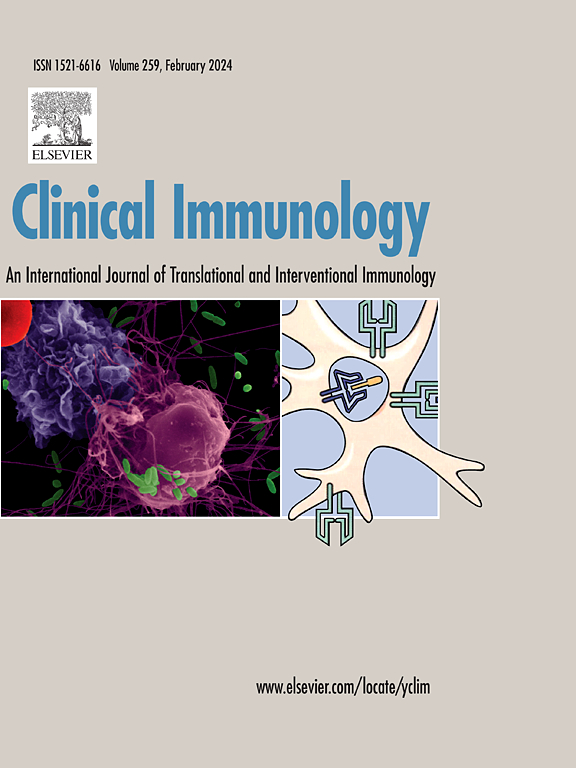Effect of repurposed metabolic drugs on human macrophage polarization and antitumoral activity
IF 4.5
3区 医学
Q2 IMMUNOLOGY
引用次数: 0
Abstract
Aim
This study aimed to investigate whether the polarization of monocyte-derived macrophages towards an anti-inflammatory phenotype could be hindered by modulating cellular metabolism. Several metabolic drugs were selected: Perhexiline (PerHx) and Nitazoxanide (NTZ) targeting fatty acid oxidation, CB839 (Telaglenastat) targeting glutaminolysis and Metformin (Metf) targeting the mitochondrial electron transport chain.
Results
Our findings demonstrate that the presence of PerHx, NTZ, and CB839 during IL-4-mediated macrophages polarization impaired the acquisition of full anti-inflammatory phenotype, as evidenced by reduced expression of CD163 and CD209 and decreased secretion of CCL17 chemokine. Besides, CB839 induced tumoricidal activity in macrophages, comparable to that observed in macrophages activated by LPS and IFNγ.
Conclusion
This study reveals that targeting glutamine metabolism with CB839 effectively blocks the IL-4-induced anti-inflammatory phenotype in macrophages and enhances their tumor-killing capability. Our results provide a compelling rationale for repurposing metabolic drugs to create a pro-inflammatory tumor microenvironment, thereby potentially enhancing the efficacy of current immunotherapies.
重组代谢药物对人巨噬细胞极化和抗肿瘤活性的影响。
目的:本研究旨在探讨单核细胞来源的巨噬细胞向抗炎表型的极化是否可以通过调节细胞代谢来阻止。选择几种代谢药物:针对脂肪酸氧化的过己胺(PerHx)和硝唑尼德(Nitazoxanide, NTZ),针对谷氨酰胺解的CB839 (Telaglenastat)和针对线粒体电子传递链的二甲双胍(Metf)。结果:我们的研究结果表明,在il -4介导的巨噬细胞极化过程中,PerHx、NTZ和CB839的存在损害了完全抗炎表型的获得,这可以通过CD163和CD209的表达减少和CCL17趋化因子的分泌减少来证明。此外,CB839诱导巨噬细胞的杀瘤活性与LPS和IFNγ激活的巨噬细胞相当。结论:本研究揭示CB839靶向谷氨酰胺代谢可有效阻断il -4诱导的巨噬细胞抗炎表型,增强巨噬细胞的杀伤能力。我们的研究结果为重新利用代谢药物来创造促炎肿瘤微环境提供了令人信服的理论依据,从而有可能提高当前免疫疗法的疗效。
本文章由计算机程序翻译,如有差异,请以英文原文为准。
求助全文
约1分钟内获得全文
求助全文
来源期刊

Clinical immunology
医学-免疫学
CiteScore
12.30
自引率
1.20%
发文量
212
审稿时长
34 days
期刊介绍:
Clinical Immunology publishes original research delving into the molecular and cellular foundations of immunological diseases. Additionally, the journal includes reviews covering timely subjects in basic immunology, along with case reports and letters to the editor.
 求助内容:
求助内容: 应助结果提醒方式:
应助结果提醒方式:


